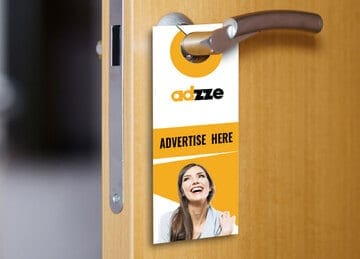Door Hanger Distribution Is Powerful—But Only When Done Right
In the world of direct, place-based marketing, few tools are as tactile and immediate as a door hanger advertisement. Whether you’re promoting a local business, political candidate, or public service announcement, door hanger distribution places your message right in consumers’ hands—often quite literally.
But with great access comes great responsibility.
What many marketers don’t realize is that door hanger distribution, while seemingly simple, is governed by a patchwork of local laws, ethical guidelines, and community norms. A well-designed door hanger ad can boost brand visibility. But a poorly executed campaign can lead to complaints, fines, or even legal action.
This blog will walk you through the legal and ethical must-knows for launching a professional, compliant, and community-friendly door hanger campaign. Whether you’re a seasoned advertiser or testing this medium for the first time, understanding the boundaries is key to campaign success.
Why Legal and Ethical Considerations Matter in Door Hanger Distribution
First, let’s state the obvious: door hanger distribution isn’t junk mail. Unlike mass flyers or email campaigns, door hangers directly impact people’s private property. That’s why marketers must be especially mindful of how, when, and where they deliver.
Legal missteps or ethical oversights can result in:
Fines from municipalities or HOAs
Negative brand perception
Complaints to local authorities
Disruption to future campaigns
On the flip side, understanding the rules of the game helps you build community trust and improves the effectiveness of your door hanger advertising.
Door Hanger Distribution Laws: What You Need to Know
There’s no single federal law that governs door hanger ads in the U.S., but state, city, and even neighborhood rules often apply. Here’s what to look out for:
Local Ordinances
Many cities require permits or impose specific restrictions on door hanger distribution. For example:
Prohibitions on commercial advertising on private residences
Time-of-day restrictions for delivery
Fines for leaving hangers in “No Solicitation” zones
👉 Always check with the local city or county government office before planning your campaign.
Homeowners Associations (HOAs)
Private communities may have stricter rules than municipalities. HOAs can prohibit door hanger advertising entirely or limit it to certain types of messaging (e.g., community events only).
To avoid friction:
Contact HOA boards in advance
Get written permission if possible
Clarify drop-off zones or delivery protocols
Private Property and Trespassing Laws
It’s legal to hang materials on doorknobs in most areas, but entering gated properties or crossing onto marked private land can cross into trespassing—even if it’s unintentional.
Always instruct your delivery teams to:
Avoid gated or restricted areas
Respect “No Trespassing” and “No Solicitation” signs
Never enter homes, garages, or backyards
Door Hanger Advertising Ethics: Respecting the Consumer Experience
Even when your campaign is legally sound, it can still leave a bad impression if executed carelessly. Let’s break down the ethical best practices for effective, community-friendly door hanger advertising.
✅ Respect Opt-Outs and Signage
A “No Soliciting” or “No Advertising” sign means exactly that. Ignoring it not only risks legal trouble but damages your brand’s reputation.
✅ Use Responsible Messaging
Avoid content that:
Is misleading or deceptive
Contains fear-based tactics (especially in healthcare or insurance)
Targets vulnerable groups without consent
Instead, opt for messaging that’s:
Clear
Helpful
Contextually relevant
For example, a door hanger ad promoting senior care should avoid using scare tactics and instead offer value-driven information.
✅ Avoid Littering or Overposting
Train delivery teams to:
Hang materials securely on doorknobs (not mailboxes)
Avoid placing hangers in windy conditions
Collect and dispose of extras responsibly
One of the most common complaints in door hanger distribution is litter. It reflects poorly on your brand and creates a mess for homeowners and city workers alike.
Door Hanger Distribution Cost vs. Compliance: Why It Pays to Do It Right
Some marketers are tempted to go “rogue” with door hanger distribution to save money. But cutting corners often backfires.
While door hanger distribution cost varies based on design, printing, and delivery scale, non-compliance can cost more. Penalties can range from $100 to $1,000 per violation—far outweighing the price of a proper permit or a vetted distribution partner.
Investing in:
Legal research
HOA outreach
Trained delivery teams






